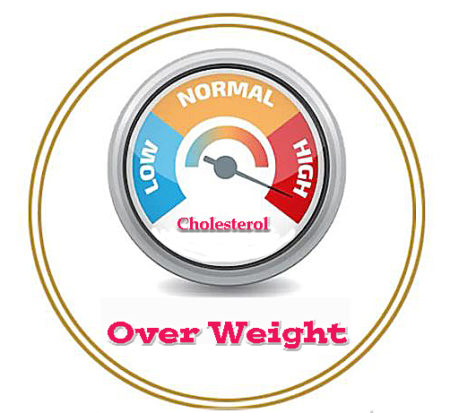How to Self-Diagnose Low Testosterone. Low testosterone, also known as hypogonadism, can have a significant impact on a person’s physical and emotional well-being. While it is always recommended to consult with a healthcare professional for an accurate diagnosis, there are certain signs and symptoms that may indicate low testosterone levels. In this article, we will provide a detailed guide on how to self-diagnose for low testosterone symptoms.
Learn Affiliate Marketing and Build a Sustainable Lucrative Income. Click Here!
Understanding Testosterone Levels
Testosterone is a hormone primarily produced in the testes in men and, to a lesser extent, in the ovaries and adrenal glands in women. It plays a crucial role in the development of reproductive tissues, muscle mass, bone density, and overall well-being.
Typically, testosterone levels peak during adolescence and early adulthood, gradually declining with age. However, some individuals may experience lower levels of testosterone, leading to various symptoms and potential health issues.
Common Symptoms of Low Testosterone
While the presence of symptoms does not necessarily indicate low testosterone levels, they can provide a starting point for self-assessment. Here are common symptoms associated with low testosterone:
- Decreased Libido: One of the primary signs of low testosterone is a decrease in sexual desire or libido. Individuals may notice a reduced interest in sexual activities or experience difficulty in achieving or maintaining erections.
- Fatigue and Low Energy: Low testosterone can contribute to persistent fatigue, reduced energy levels, and a general lack of motivation. Some individuals may find it challenging to stay active or engage in regular exercise.
- Loss of Muscle Mass: Testosterone is essential for the development and maintenance of muscle tissue. Individuals with low testosterone may experience a gradual loss of muscle mass, accompanied by a decrease in strength and endurance.
- Increased Body Fat: Low testosterone levels can contribute to an increase in body fat, particularly in the abdominal area. This can result in a higher waist circumference and a higher risk of obesity-related health issues.
- Mood Changes: Testosterone is also linked to mood regulation and overall well-being. Low testosterone levels may manifest as irritability, mood swings, depression, or a general decrease in cognitive function.
- Decreased Bone Density: Testosterone plays a crucial role in maintaining bone density and strength. Low levels of testosterone can lead to decreased bone mineral density, potentially increasing the risk of osteoporosis and fractures.
- Sleep Disturbances: Some individuals with low testosterone may experience sleep disturbances, such as insomnia or disrupted sleep patterns. This can further contribute to fatigue and overall feelings of unrest.
Self-Assessment and Next Steps
If you identify with several of the symptoms mentioned above, it may be worth considering consulting a healthcare professional for further evaluation. While self-diagnosis can provide initial insights, it is important to note that other underlying health conditions can mimic low testosterone symptoms.
When you consult with a healthcare professional, they may conduct a comprehensive assessment, which can include:
- Medical History: A thorough review of your medical history, including any current or past conditions, medications, or surgeries.
- Physical Examination: A physical examination may be conducted to evaluate any visible signs or changes associated with low testosterone.
- Blood Tests: Blood tests are commonly used to measure testosterone levels. A healthcare professional may evaluate both total testosterone and free testosterone levels to determine if they are within the normal range.
- Additional Tests: In some cases, additional tests may be necessary to rule out other potential causes of the symptoms, such as thyroid dysfunction or certain medications.
It is crucial to remember that self-diagnosis should never replace professional medical advice. A healthcare professional will have the expertise to interpret test results accurately, evaluate your symptoms holistically, and recommend appropriate treatment options if necessary.
Conclusion
Self-diagnosing low testosterone symptoms can be a useful starting point for understanding your own body and potential health concerns. By familiarizing yourself with the common signs and symptoms, you can better communicate your experiences to a healthcare professional. However, it is crucial to involve a medical professional in the diagnostic process to obtain an accurate assessment and receive appropriate guidance for treatment if necessary. Remember, each individual’s circumstances are unique, and professional medical advice plays a crucial role in managing and addressing any health concerns effectively.
**Disclosure Statement:** Make Money With Max Online promotes affiliate marketing products or services to help save time when searching for courses or products that actually work.
This means that when you click on an affiliate link provided on our website and make a purchase, we may cost you.
We only recommend products or services that we personally believe in and have used ourselves. The commissions we earn through affiliate marketing help support the maintenance and growth of our website, allowing us to continue providing valuable content to our readers.
Please note that our information and recommendations are solely based on our own experiences and research. Your own experience with any products or services recommended on our website may vary. Thank you for supporting Make Money With Max Online by using our affiliate links.
Your support helps us continue our mission of helpful and honest information to our readers.







